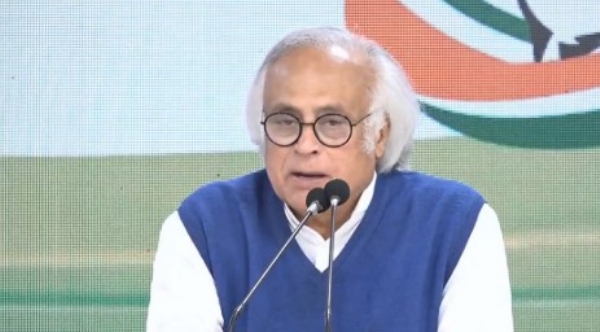
New Delhi, Aug 26 (HS): Congress General Secretary Jairam Ramesh on Tuesday accused the central government of failing to take any concrete steps to advance nuclear energy during the recently concluded Monsoon Session of Parliament.
In a post on social media platform X, Ramesh said that while the Union Budget 2025-26 had made “tall claims” about strengthening India’s nuclear energy sector, the government did not bring even a single bill related to it during the session. He also raised objections to the proposed amendments to the Civil Liability for Nuclear Damage Act, 2010, originally enacted during the Congress-led government.
Ramesh pointed out that Finance Minister Nirmala Sitharaman, in her budget speech, had announced two major reform initiatives. The first, amending the Civil Liability for Nuclear Damage Act, 2010. The second, amending the Atomic Energy Act to permit private companies to set up and operate nuclear power plants.
“Will the government introduce these bills in the Winter Session, just three months from now, or will they too be pushed into cold storage?” Ramesh asked, while also seeking clarity on the fate of a long-awaited legislation to establish an independent regulatory authority outside the existing nuclear establishment to ensure transparency and impartial oversight.
He argued that if the government was serious about attracting private investment in the nuclear sector, it must prioritize these legislative measures. Recalling the passage of the 2010 Liability Act, Ramesh noted that it had come through with the support of then Prime Minister Dr. Manmohan Singh and key leaders such as Arun Jaitley and Sushma Swaraj. Any move to dilute its provisions, he warned, would undermine those hard-won achievements.
The Civil Liability for Nuclear Damage Act, 2010, enacted in the wake of global nuclear safety concerns, was aimed at providing prompt compensation in the event of a nuclear accident. Based on a stringent, no-fault liability principle, the law mandates that the operator, such as NPCIL, must compensate victims up to ₹1,500 crore without requiring proof of negligence. In cases of higher damages, the government and international funds can step in. Suppliers of faulty equipment may also be held accountable.
The law was seen as a cornerstone in India’s nuclear policy—balancing victim protection, compliance with international frameworks, and encouragement of nuclear expansion—while ensuring accountability within the system.
---------------
Hindusthan Samachar / Jun Sarkar








